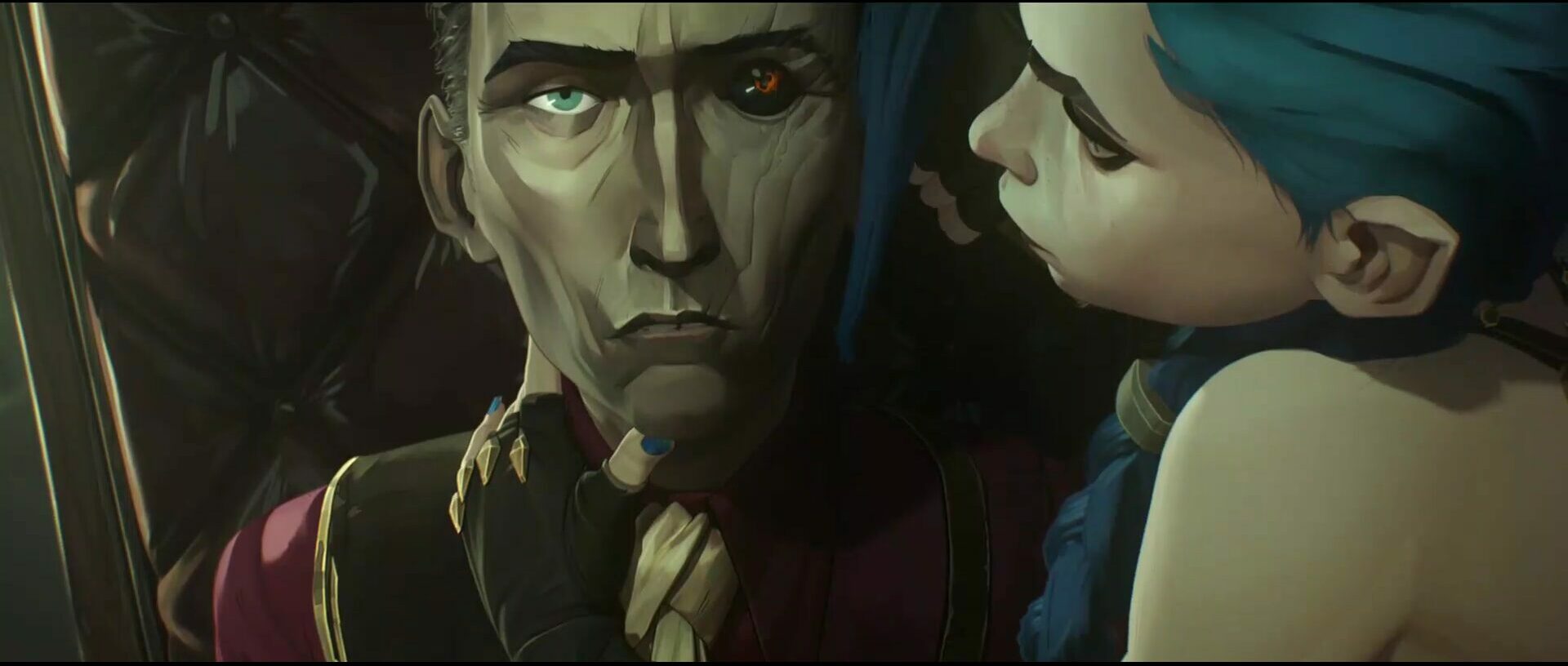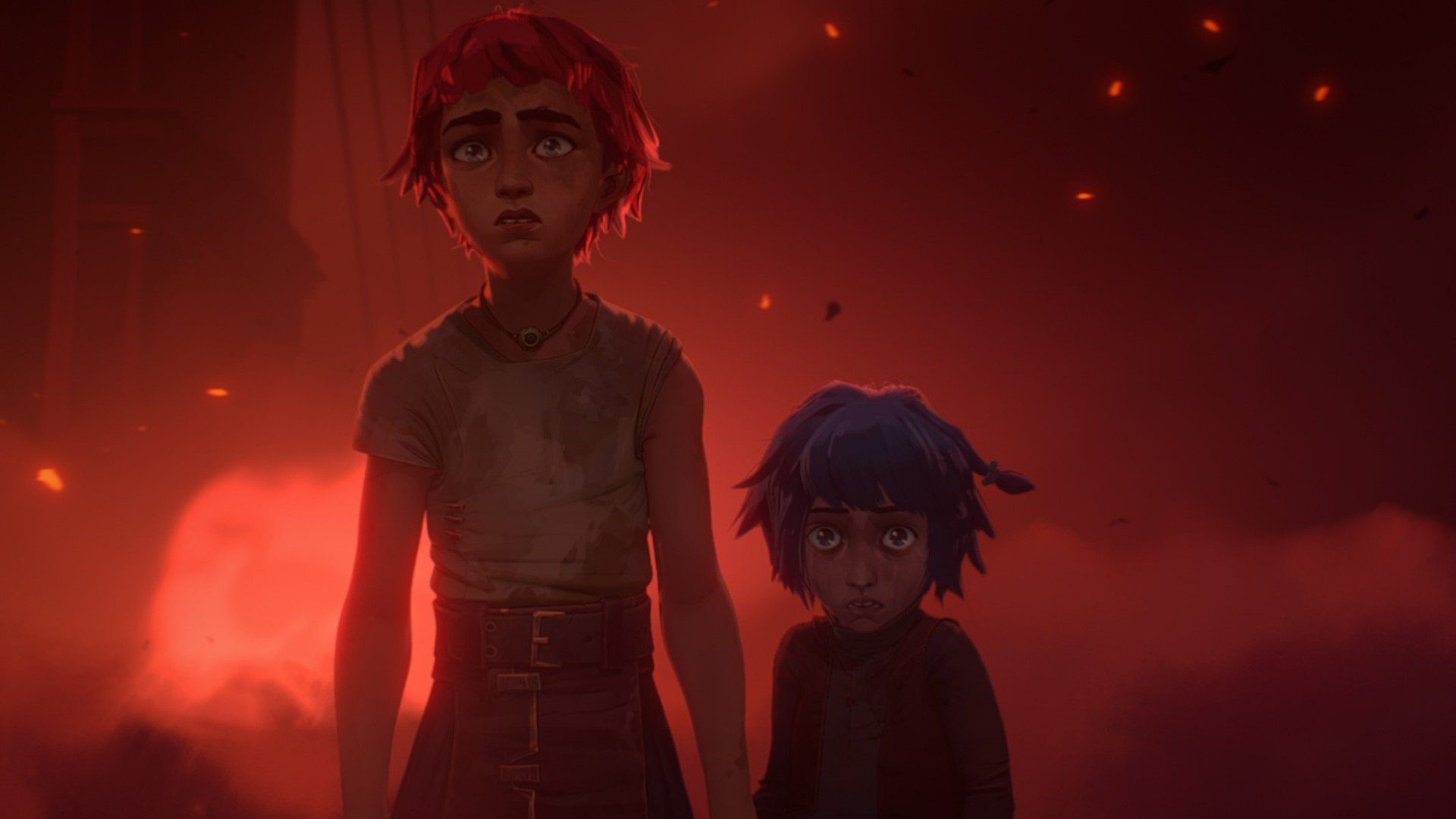The Real Magic in Arcane: The Characters
“When people look up to you, you don’t get to be selfish.”
If you haven’t seen Arcane yet, I have two things to say to you. Firstly, I’d urge you to give the show a chance. This is one of the most surprising, smart new series I’ve seen in a long time. Secondly, don’t read this until you have seen it. I have a spoiler-free review of season 1 here, but this time I’d like to talk about one of my favorite aspects of this remarkable series, its characters. I mentioned in my review that the characters and relationships were some of my favorite parts of Arcane. I’m a character girl in general; if I don’t like the characters in a movie or show, it’s only a matter of time before I get bored and quit watching it. I’m also willing to put up with a lot if I do like the characters; otherwise, I probably would have quit The Witcher after season 1. Arcane is a truly unique experience in that, while the characters exemplify the best of what this show has to offer, the storytelling and technical aspects go above and beyond what I usually expect. There’s no facet of this production that isn’t pulling its weight in telling the story. I’d like to talk about those down the line, too, especially the series’ brilliant use of music.
*SPOILERS*

The obvious starting point would be Jinx and Vi. These sisters are the heart and soul of Arcane, and we see the harsh realities of this world through their eyes. The very first scene of the first episode sees Vi break down over their dead parents while Powder clings to her, trying to offer what comfort she can. This establishes very early on that Vi is prone to raw emotions and will react accordingly in moments of extreme stress. This is notably different from today’s cool, collected female leads who always have a one-liner and never a stray hair out of place. It also more subtly introduces us to the fact that Powder loves Vi more than anyone in the world. We can’t read her mind, but based on what we’re shown, Powder doesn’t seem bothered about her dead mother’s corpse. All of her attention is on Vi and trying to make her feel better. This could also indicate that something is already off about the young girl, or maybe she’s just too young to truly understand what has happened. I love the way Arcane wordlessly introduces us to its main characters. Vi’s body language, the bleak, foreboding music, and Vander’s reaction when he sees the two girls speak volumes. The muffled thud when his gauntlets hit the ground is also strangely satisfying, ushering in a new mission and priority for the seasoned fighter. Part of Vi’s problem is that she learns early on that she has to fight her way out of her obstacles. This works sometimes, but you can’t punch your way through family drama or tragedy. For the first three episodes of Act 1 of season 1, Vander was far and away my favorite character. He’s charismatic, loving to his adopted kids, and experienced enough to know what Vi still has to learn.

The battle that killed Vi’s parents taught Vander that all-out war with Piltover’s topsiders was a fool’s errand that would end in disaster on both sides. As with everything else in this world, though, the fallout would disproportionately hurt the people of the Undercity. Vi doesn’t understand this at all, wanting to throw herself at the city’s elite rather than admit to her mistakes. From the very start of the season, they establish Vi as a rash, emotional young girl who will do anything for the people she loves. She tells Vander she would do anything to give Powder a better life than she’s had, and this leads to one of my favorite moments in the show. Vander makes Vi aware of the dangers of fighting, not just to herself but also to Powder, Mylo, and Claggor. Vander stopped fighting because he wanted to protect his kids and everyone in the Undercity. While it’s not equitable or perfect, the arrangement he has with Enforcer Grayson keeps the people of the Undercity safe and out of trouble. Their work together will later be mirrored by Silco’s gruesome deal with Marcus. This ties into the show’s theme of duality. Arcane is full of character foils, as well as comparisons between relationships and the cities themselves. Vander is a caring leader who values the individuality and resilience of his people, and Grayson is a pragmatic Sherrif but not an unfeeling one. She seems to genuinely want to maintain the peace for the good of the Undercity as much as Piltover. Meanwhile, Silco is a crimelord who cares about the independence of Zaun, but not so much the people as individuals. Silco views his workers, associates, and citizens as weapons, as opportunities to incite change. Not only is he willing to sacrifice anything and anybody to his cause, but he can’t even fathom why Vander won’t. Why does Vander love these children enough to give up his cause? Why will he do anything to keep them safe? Meanwhile, Marcus has his redeeming characteristics, but he’s deeply flawed in ways Grayson wasn’t. Marcus hates the people of the Undercity, perceiving them as dirty criminals with none of those redeeming qualities. He doesn’t see the love Vander has for his makeshift family, his patrons, and friends. Marcus sees the bad things he does as justified because he does much of it to protect his daughter, out of love for her. What he fails to understand is that the “enemy” has just as much love, just as much to fight for.

This is one of the most remarkable things about an absolutely spectacular show: the nuanced, multi-faceted way it approaches conflict. Nobody in Arcane is absolutely right or wrong. Even Silco, season 1’s main villain, has a noble cause and a tragic backstory. The fact that he forces children to work in his factories producing the enhancement drug shimmer sort of nullifies any point he may be trying to make, but it’s a good point nonetheless. And he’s dynamic! Silco is a “villain” who grows and changes but never comes over to the side of the “heroes.” That weakness he saw in Vander, the infinite love for his kids and drive to protect them at all costs, ultimately hits a little close to home for Silco. When Silco takes Powder in rather than killing her, both people are irrevocably changed. This pushes Powder, now Jinx, further down an already troubled path littered with mental illness and trauma. It re-introduces real, genuine love to Silco’s life. This is one of the most interesting relationships in Arcane, a distorted father-daughter bond between a crimelord and his adopted daughter. Silco becomes Jinx’s primary source of her self-image, her worldview, and what she believes about Vi.
This is Part 1 of a series. I will be going over Jinx, Vi, and Silco more in the future, specifically their development in Acts 2 and 3.
Comments (3)
I hope you get a chance to check it out. Really great stuff.








Haven’t read it. I still haven’t seen Arcane but hear nothing but good things.